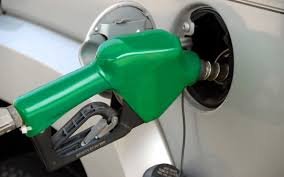The Commission for Air Quality Management (CAQM) has announced a sweeping ban on the use of diesel-powered commercial vehicles—including cabs and delivery vans—across the Delhi National Capital Region (NCR) by 2026. This directive is a key part of efforts to improve air quality and promote sustainable, clean mobility within one of the world’s most polluted regions.
Key Policy Highlights
- Registration of new diesel light commercial vehicles (LMVs) will be prohibited in Delhi NCR from January 1, 2026.
- Existing diesel cabs and delivery vehicles must transition to electric vehicles (EVs) or run on compressed natural gas (CNG) by November 1, 2026.
- The new rules cover all NCR cities, including Delhi, Gurugram, Noida, Ghaziabad, Faridabad, and others.
Background
Delhi NCR’s chronic air pollution is driven in large part by vehicular emissions. Diesel-powered commercial vehicles contribute significantly to the region’s toxic air, which affects public health and quality of life. While older diesel cars have been banned within Delhi for some time, this new CAQM directive extends restrictions to commercial diesel LMVs throughout the entire NCR.
The move supports India’s broader climate and sustainability goals, including targets for electric mobility and carbon neutrality by 2070.
Who Will Be Affected
The directive directly impacts:
- Cab aggregators and ride-sharing services (e.g., Ola, Uber, Rapido)
- E-commerce and logistics companies (e.g., Amazon, Flipkart, Zomato, Swiggy, Blinkit, Zepto)
- Local courier and delivery service providers
- Private fleet operators involved in goods transport
According to the CAQM, over 95% of current commercial fleets in the NCR operate on diesel or petrol, meaning this policy will necessitate a significant, industry-wide shift.
Implementation Timelines
| Action | Deadline |
|---|---|
| Registration of new diesel LMVs | January 1, 2026 |
| Full transition of commercial diesel LMVs to EV or CNG | November 1, 2026 |
Transition Challenges and Industry Concerns
| Challenge | Details |
|---|---|
| High EV Costs | Upfront investment for electric vehicles is high, especially for smaller fleet owners. |
| Charging Infrastructure | The current EV charging network in NCR is uneven, requiring expansion to meet demand. |
| Small Fleet Readiness | Smaller operators may find it difficult to afford the transition without government support. |
| Alternative Fuel Availability | Although CNG is allowed, its availability varies across different regions within NCR. |
Industry stakeholders emphasize that a coordinated effort involving incentives, financing support, and rapid infrastructure rollout will be essential for a smooth transition. As one senior executive explained, “This mandate is a critical step for our environment, but operators need clear guidance and financial options to overcome the high costs and infrastructural challenges.”
Policy Objectives and Long-Term Benefits
- Reduce toxic emissions that contribute to poor air quality and respiratory health issues.
- Accelerate the adoption of electric and clean fuel vehicles in urban transport.
- Lower long-term operating costs for fleet operators as newer technologies become more affordable.
- Support national initiatives for sustainable transport and EV manufacturing.
Government officials point out that, although the transition may pose short-term challenges, the long-term benefits for public health and the environment are substantial.
Impact on Existing Diesel Vehicles
Diesel vehicles that were registered before January 2026 will remain operational until the November 1, 2026 deadline. After that date, they must be retired or replaced with EV or CNG alternatives. Non-compliance could result in deregistration, fines, and legal action under environmental and vehicle registration laws.
Recommendations for Operators and Businesses
- Develop a Transition Plan: Assess current fleet capabilities and create a schedule for upgrading to electric or CNG vehicles.
- Explore Financial Assistance: Investigate subsidies, tax rebates, and green financing options available under Delhi’s EV policy.
- Pilot New Technologies: Begin test runs of alternative fuel vehicles to ensure readiness for full-scale adoption.
- Prepare Infrastructure: Collaborate with local authorities to access or develop charging and fueling infrastructure.
Impact on Consumers
Consumers might experience slight fare increases during the transition, but they can also expect quieter, cleaner vehicles and a long-term improvement in air quality. Enhanced environmental conditions and modernization of urban mobility services ultimately benefit the public.
FAQs
Who is affected by the diesel vehicle ban?
The ban applies exclusively to commercial diesel LMVs involved in passenger and goods transport within the Delhi NCR, including cabs, delivery vans, and courier services.
Does this affect private diesel cars?
No, the focus of this policy is on commercial vehicles. Separate regulations already address private diesel cars, including age-related bans within Delhi.
Can vehicles be converted to run on CNG instead of EVs?
Yes, fleet operators may choose to transition their vehicles to CNG or electric power, although the long-term sustainability goal favors EVs.
What penalties are in place for non-compliance?
Non-compliant vehicles after the deadline may face fines, deregistration, and legal penalties under the Air (Prevention and Control of Pollution) Act.
Are subsidies available to assist with the transition?
Delhi’s EV policy and various regional initiatives offer subsidies, tax rebates, and financing options to support fleet operators in transitioning to cleaner vehicles.
Will this policy affect vehicles entering NCR from other states?
Yes, commercial diesel LMVs from outside the NCR that enter the region must also meet the new standards by the prescribed deadlines.
Looking Ahead
The CAQM’s directive represents a decisive step toward improving air quality and promoting sustainable urban transport in Delhi NCR. While the transition presents challenges, the long-term gains—in terms of public health, environmental protection, and modernization of the transport sector—are expected to significantly transform the region. Fleet operators are encouraged to begin planning now to ensure compliance and take advantage of available support measures.

